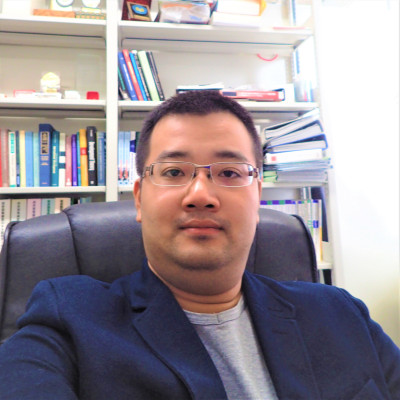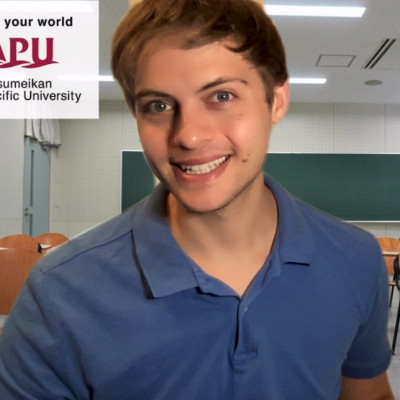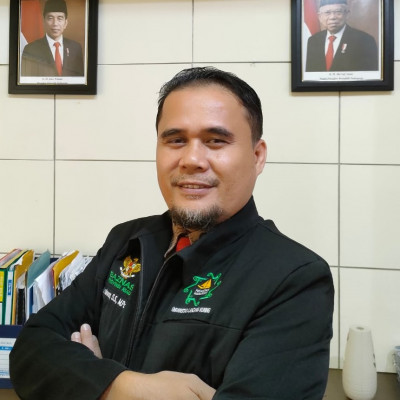Sessions / Research Report/Paper (25 mins Onsite)
Pedagogical Approaches to Studying Literature to Enhance EFL Learners’ Language Proficiency #3606
Partner Session (ETA-ROC)
As literary courses in the curricula of the departments of Foreign Languages and Literature or English have been greatly dwindled, this presentation aims to examine the use of literature in a college EFL classroom in Taiwan to enhance students’ language proficiency and cultural awareness. It will discuss the major reasons why literature is neglected and explain the benefits of studying literature, to explain the pedagogy and activities used to comprehend the selected literary texts, and demonstrate how a four-skilled integrated approach (listening, speaking, reading, and writing) to learning literature can enhance EFL learners’ language performance. It is hoped that college students will be benefitted by studying literature.
Effects of Limited-Term Contracts on Foreign Language Teachers Integration into Japan #3628
At a time when universities are experiencing a steep decline in enrollment rates, staff retention, integration, and commitment play an important role in the institution's sustainability. Thus, the current study aims to explore the effects of limited-term contracts (LTCs) on foreign language teachers' (FLTs') willingness to integrate on work-related and sociocultural levels. This research adopts a qualitative approach using questionnaires and interviews that focus exclusively on FLTs' LTCs at a university in Tokyo. Key findings are that LTCs do have a direct impact on FLTs willingness to integrate within their institutions at a peer and institutional level as previously highlighted by Chen (2022), Sato and Cotter (2017), Fuisting (2017), and Sato et al. (2015). However, limited effects were found at a classroom level. Additionally, evidence suggests that there is a correlation between sociocultural integration outside of work and willingness to integrate at the work-related level.
Reimagining the Language Classroom - Learner-Based Teaching #3471
Increasingly, educators are seeking more collaborative and student-centred pedagogies in the language classroom. One area that has the potential for realizing these goals is learner-based teaching. This study investigated students' attitudes towards learner-based teaching in their classrooms. Twenty-eight Japanese university students working in groups developed teaching content at two intervals over the duration of one semester. The groups then proceeded to teach the content to their classmates. Results from a post-performance questionnaire indicate that while creating their own content was challenging for students, especially when placed with non-familiar group members, most students signalled that it was overall an enjoyable experience. A further finding of this study that may have implications for language practitioners is that most students preferred more involvement in content creation for their classes.
Graduate STEM Student Perspectives and Implementation of Machine Translators in South Korea #3552
As technology advances, and more students have constant access to cell phones, laptops and tablets inside classrooms, the use of machine translation (MT) by language learners will rise. In order for instructors to better design courses they should strive to understand how students are using MT, as well as student attitudes towards this technology. This study examined the perspectives of South Korean graduate students at a STEM university towards the usage of MT in academic settings. This study featured a survey of 100 participants, and found positive correlations between the use of translators on written assignments, important academic work such as theses, as well as a proclivity to use machine translation to support daily academic tasks. Students also showed a strong belief that MT has benefits as a language learning tool. As a result of this study, language teachers may consider incorporating MT education within their curriculum.
Vietnamese Students’ Perception of PechaKucha in English Public Speaking Classes #3576
A PechaKucha is a presentation format of 20 slides of images with little text, each of which advances automatically after 20 seconds. Despite being quite popular globally in the last two decades, in Vietnam, PechaKucha is a relatively new concept, as most English Public Speaking classes still employ the traditional slides. This includes the researchers’ organization, International University, HCMC Vietnam National University. With the aim of offering students and their audience a new choice of presentation style, and investigating Vietnamese students’ perception of this style, PechaKucha was introduced to 10 English public speaking classes. A questionnaire was then administered to students who used PechaKucha for their assignments. Fifty responses were collected for data analysis. The results show positive feedback in general, but there are some concerns about the time constraints and the extra amount of work. Implications of the results can assist changes in the syllabus of the subject.
Lunching and talking: An attempt at teacher collaboration and reflection at KMUTT #3626
Partner Session (ThaiTESOL)
It is undeniable that the outbreak of Covid-19 has placed most, if not all, Thai EFL teachers in an extremely uncomfortable situation. While the pandemic may have slowly faded, its legacy still lurks behind the pedagogical practice and policy making in a lot of Thai educational institutes. At King Mongkut's University of Technology Thonburi, online classes continue to be regarded as a practical, convenient and above all, 'safe' mode of learning. The safety net of online teaching, nevertheless, comes with an expensive price for EFL teachers at the university who have lost touch with not only their students but also their work colleagues. To tackle the issue, a series of lunch talk was organized from December 2022- February 2023 to encourage the faculty to discuss, reflect and share their research ideas, anxiety and self-development goals. The topics ranged from casual conversations such as favorite books to serious discussions on professional development, research collaboration and teaching techniques. A total of 22 teaching staff at the Department of Language Studies were then interviewed to mainly see if they had benefited from attending the talks. Findings showed a variety of opinions and interestingly two-thirds of the participants did not find attending the talks useful or impactful. Further inquiry into teachers’ expectations regarding collaboration should therefore be made to ensure the long-term benefits.
Our Collaborative Journey as Advisors #3662
In this talk, the presenters will share their experiences of developing as teacher-advisors through participating in a 5- level advising course. Through their collaboration at University’s dormitory program, they could use that knowledge to enhance the student experience, autonomy and overall motivation (Goddard et al., 2010). In order to encourage reflection and promote learner autonomy in the dormitory, they changed the reflection journal format and transformed feedback sessions into goal-oriented advising sessions. In doing so, researchers also could reflect on their two-year journey of running the program and how the collaborative experience has helped them to put the theory of advising in language learning into practice. They will present the details of the project, challenges they experienced, results and some broader implications this may have. Time will be included for questions at the end of the presentation.
Conducting, Collaborating, Sharing: Three Tenets of Practitioner-Research #3438
Engaging in practitioner-research has a range of benefits for teachers, educational institutes, students, and the overall field of TESOL. Teachers can move toward becoming “holistic TESOL professionals” (McKinley, 2019), new approaches can be experimented with, effective teaching practice can be identified and promoted, and focusing on the real-life issues that affect teachers enables the linking of theory and practice.
In this presentation, three of the central tenets of practitioner-research (conducting, collaborating, and sharing) are identified and their importance to the wider educational community is discussed. Practical steps that can be taken by educators to promote the effective development of those tenets are then highlighted.
It is hoped that this presentation will encourage engagement in practice-based investigations, the sharing of research findings with others, and the development of collectivities or communities of practice, leading to a range of positive outcomes for multiple stakeholders throughout the educational environment.
Reading Anxiety and Reading Performance Among Vietnamese English-Major Students #3484
Reading seems to be an easy process which does not cause language learners as much tension as other productive skills. However, similar to other skills, an experience of anxiety may cause poor performance and reading receives no exception. The current study investigated 71 English-major students who studied the English Linguistics Program at International University,VNU-HCMC, Vietnam. The students took part in the survey to measure their reading anxiety, using the English Foreign Language Reading Anxiety Inventory (EFLRAI) (Zoghi & Alivandivafa, 2014). They were later assigned one Certificate in Advanced English (CAE) reading test to measure their reading performance. The results found out that students experience low to moderate levels of reading anxiety. Additionally, the Pearson correlation test showed a significant moderate negative relationship between reading anxiety and reading performance (r=-.362). The findings indicate that the anxious feelings can be considered as a barrier to students achieving good reading performance.
Reassessing Classroom Observation for University Teachers #3587
Classroom observation is one of the most common ways to reflect and improve teaching practice. However, the researchers recognized, through conversations with colleagues and friends, an apparent lack of classroom observations among university teachers in Japan and decided to investigate this issue further. This study investigates the experiences and beliefs of university teachers working in Japan related to classroom observations. An online questionnaire was distributed and the results were a combination of quantitative and qualitative data. Follow-up interviews were conducted with volunteer teachers to discuss their experiences of classroom observations in more depth. The results highlight the scarcity and negative connotations of classroom observations, as well as offering practical ideas for how to re-evaluate and consider the benefits of peer-to-peer classroom observations at the university level in Japan. The researchers will then introduce their plans to develop this research in the future.
ESL Malaysian University Students’ Perceptions toward Using Smartphones for English Learning #3601
With rapid developments in the field of digital literacy, technology has shifted from computer-assisted language learning (CALL) to mobile-assisted language learning (MALL). The smartphone plays an important role in helping students learn English. Therefore, the aim of this study was to investigate the perception of English learning among ESL students in Malaysia. This study uses a quantitative research design. An online questionnaire was used to collect data, which was completed by 150 students in selected public universities in Malaysia. The result was analysed using descriptive and inferential statistics such as percentage, frequency, mean and standard deviation. The empirical findings of the study show that students have a positive perception towards the use of smartphones as a potential tool to enhance their English learning. Therefore, the use of smartphones should be continuously practised by university students in Malaysia to enhance English learning and increase digital literacy in 21st century education.
Reading: Beyond comprehension, and encouraging interaction with texts #3624
Partner Session (JALT)
The development of Japanese students’ critical thinking skills is being encouraged by Ministry of Education, Culture, Sports, Science, and Technology (MEXT). Unfortunately, many students at the tertiary level in Japan are still not able to use these skills effectively, and many students lack a basic understanding of critical thinking. In order to develop university students’ critical thinking skills this presenter has combined a variety of different reading techniques including, SQ3R and signposting, in combination with effective questioning techniques, such as Costa’s Levels of Questioning. For this presentation, after a quick description of the scaffolding used to teach students, participants will be presented with the results of a classroom-based project on the implementation of this scaffolding. Examples of students’ improvement on question development as well as the connection to deeper text interaction, will also be presented.
"English Teaching Forum" Roadshow for Thai Primary School Teachers: A Collaborative Project #3637
Partner Session (ThaiTESOL)
The presentation showcases the "English Teaching Forum" Roadshow as a collaborative project between Regional English Language Office (RELO), US Embassy (Bangkok) and Thailand TESOL to conduct five workshops for Thai primary school teachers nationwide. This project celebrated the 60th anniversary of "English Teaching Forum" magazine, which publishes a number of articles on practical pedagogies and materials that cater for various learning needs and levels. This one-day on-site teacher training workshop was designed based on the perceived needs of teachers through an edutainment communicative teaching method. Each workshop aimed at both upskilling the teachers' English proficiency and promoting technology-enhanced teaching methods through the use of online materials. There were nearly 200 teachers from five regions in Thailand attending these workshops. They not only expressed positive attitudes toward the training as they gained first-hand experience to enhance their professional development, but also created a professional learning community within the region. This project highlights the mutual engagement between Thailand TESOL and RELO Bangkok to strengthen ELT communities in Thailand and expand wider networks of teachers who can potentially play key roles for young learners' English achievement during and beyond Covid-19.
Providing Authentic Communication through a Discovery Experience #3661
This presentation introduces a pedagogical project aimed at igniting Japanese university English learners' willingness to communicate by providing an authentic communication experience from the everyday English classroom. The designed project consisted of three discovery missions for students that began when students received a box from overseas. By writing a letter and receiving a response, students created a presentation on what they learned about the sender. This pedagogically designed experience-based activity fostered an interest in communicating with dissimilar others using English as a communication tool. This project contributes one idea for practitioners who wish to incorporate authentic communication in their everyday lessons.
Exploring Students' Perceptions of English Language Learning through Virtual Reality and its Impact on Speaking Proficiency #3595
Virtual Reality (VR) has shown promise in foreign language learning, with potential benefits in reducing foreign language anxiety, enhancing speaking performance, and improving long-term memory retention. However, using Head Mounted Displays (HMDs) can lead to user discomfort and sickness. To address this issue, this study aimed to compare the effects of VR English lessons delivered via HMDs and Personal Computers (PCs) on speaking proficiency and foreign language anxiety among eight Japanese university students. To evaluate the outcomes, the researchers conducted a TOEIC speaking test and a questionnaire survey three times: before and after the VR lesson with HMDs and after the VR lessons with PCs. Moreover, the study examined the self, social, and spatial presence through a questionnaire survey conducted after the VR lessons with PCs. The results of the study will be presented, along with their pedagogical implications in using VR with HMDs and PCs for foreign language learning.
Asset-enriching pedagogy for Interest-driven language learning: Tapping into students’ fannishness #3636
The field of TESOL has focused on how interest-driven practices (e.g., playing English-medium online games) facilitate incidental language and literacy development among language learners. Researchers have tried to bring students' interest-driven practices into formal language classrooms. This presentation shares the presenter's design-based research study on using popular pop culture content (TV shows) in her adult international English language learners in the U.S.. The presenter triangulated the three key elements - the learning potential of the target content, students' actual interest in the target content, and teacher's familiarity with the target content. Through the lens of affinity space (e.g., Gee, 2007) and L2 willingness to communicate (e.g., MacIntyre, et al., 1998), the qualitative analysis revealed how the course 1) evoked the feeling of fannishness' among the students to be more willing to communicate in English and 2) functioned as an affinity space that invited and enriched students' out-of-classroom interest-driven language practices.
How can we learn what academics think about their peers’ opinions? #3660
Considering the dearth of interaction possible in the last three years, it is impossible to ignore the paucity of quality connections between academics. Our podcast project attempted to fill this gap in two ways: a) by using our academically-oriented podcast series to contact and interview leading academics in their disciple; b) by directly addressing the contents of previous interviews to ask for the experts’ reactions. We uncovered a ‘narrative’ in our work, encouraging other experts to join our discourse. We will present this narrative from experts in the field of English as a Medium of Instruction (EMI) and how the differences in opinion led to fruitful and engaging discussions that would have been impossible without our efforts during the time of COVID lockdowns. We will demonstrate the opportunities for qualitative analysis of long-form academic interviews to bring state-of-the-art academic conversations to a broad audience.
COIL: Replacement or Preparation for Actual Study Abroad? #3469
During the Coronavirus pandemic, collaborative online international learning (COIL) emerged as a substitute for study abroad. However, there is now an opportunity to re-purpose COIL to better prepare prospective sojourners. This presentation will report on the experiences and government-funded research of the presenter, who coordinated two cross-cultural COIL courses between students at a university in Japan and those studying in North America. In this presentation, the speaker will first introduce the COIL courses by comparing two different online platforms that were used: Padlet and Flip. Next, based on qualitative data received from 31 students and employing a phenomenological research design, the presenter will discuss the effectiveness of using COIL as preparation, as opposed to a replacement, for overseas experiences. Both educators and administrators who attend this session will be exposed to ideas for setting up COIL and integrating it into L2 and cross-cultural curricula.
Succeed with Skills: An Academic Writing Diagnostic Programme to Bridge Gaps in Higher Education #3590
Academic achievement gaps between different groups of students in Higher Education (HE) has become a crucial concern. This paper focuses on an action-research oriented, skills development diagnostic programme designed and delivered in collaboration between subject-specialists and learning development practitioners to first-year management students. The aim was to bridge the skills gap for students from different backgrounds including entry qualifications, race and socio-economic class. The programme targeted: structure, critical writing, and evidence-based writing. The diagnostic used the Articulate software and the results directed students onto one of two levels of study-skills sessions: Develop or Enhance. Preliminary evaluation results showed students reported an increase in confidence levels ranging from 22% - 25.8%. This type of programme could potentially equip students with the tools and knowledge they need to succeed in their studies regardless of their backgrounds, and thereby help in facilitating student mobility and social justice in HE.
Kakao Open Chat to Support English-Medium Instruction Classes: A Useful Tool #3615
Kakao Open Chat (OC) is a feature of Kakao Talk. OC is a free, anonymous open board that can be password-protected. One presenter employed English-medium instruction (EMI) with international law classes in the spring and fall of 2022. The spring semester was online-only (asynchronous video lectures), and the fall semester was face-to-face. The classes were large (n = 30-60 per class). In such conditions, students often hesitate to interact. We asked, “Will students use OC to ask for the information they need?” and “Will OC proceed in a safe and positive way?” Surveys were conducted after each semester to assess perceptions of OC, OC chats were downloaded and thematically analyzed, and volunteers were interviewed. Results show that using Kakao OC helps students learn course content and overcome the English barrier, and it contributes positively to learning in both asynchronous and face-to-face conditions. We offer suggestions for its use.
Self-Directed Learning: Exploring the Continuous Professional Development of NESTs in South Korea #3633
This project explored the self-directed professional development (SDPD) that native English-speaking teachers (NESTs) in South Korea engaged in. Data was collected from 56 teachers who completed online questionnaires, 11 teachers of which also completed follow-up interviews. In the 12 months prior to the study, only 35 teachers engaged in SDPD. Findings indicated that teachers with education degrees interested in pursuing long-term EFL/ESL careers were the most likely to participate in SDPD. Of the teachers that failed to participate, multiple factors hindered involvement (e.g. lack of necessity). Consistent with research literature, the study participants did not appear to engage in sufficient professional development to increase student learning outcomes, completing only 1.23 SDPD activities on average. Considering our findings, this presentation includes recommendations to tackle SDPD at the individual, accreditation, and context levels. Attendees working and/or advising in education contexts wishing to further their knowledge of effective SDPD practices (e.g. reflection) will find this presentation informative.
The Designing of English for MICE: Target Language Needed by the Industry #3658
This study aims to investigate English target language required in the operation of MICE (Meetings, Incentives, Conferences, and Exhibitions) business in Thailand. Data were gathered from 30 employees and executives who have at least 7-year work experiences in MICE sectors. The questionnaire, supplemented by a semi-structured interview, was designed to explore situations where the English language is necessary for workers to function successfully in the MICE industry and to examine issues that might hinder the successful use of English. Major findings indicated that productive skills of English in the target situations such as briefing and explaining concepts, scopes, and details of a MICE event and delivering a sales pitch to a client in English were the most important. Problems and challenges that frequently hampered the effective English communication among MICE employees were also specified. Findings from this study yielded useful information and had considerable implications for designing the syllabus and materials in English for MICE. That is, the course content should include integrated skills of English, with an emphasis on productive skills.
Starting Moodle LMS for your Classroom #3664
Partner Session (JALT)
A learning management system (LMS) supports learning activities such as discussions, quizzes, and interactive elements and has become essential for classrooms. A well-organized LMS requires good planning and execution to thoroughly distribute learning objectives and resources. The shift to online learning has necessitated the digitization of the classroom environment to aid instruction and support for teachers. Moodle is an academic LMS software that has helped support the presenter's classroom. This presentation will focus on its standard features, advantages, and improvements over other systems and the challenges it presents. The future of Moodle and e-Learning systems beyond COVID-19 will also be discussed. The presenter hopes that participants will find LMS software valuable as a long-term augmentation to their classrooms, whether in-person or online.
Exploring Refugee Students’ Funds of Knowledge for English Language Teaching #3584
This research explores a Funds of Knowledge (FoK) approach to ELT in a Malaysian refugee learning center. To promote social justice in quality education for refugees, teachers can harness this asset-based approach to capitalise on a learner’s knowledge, skills, experiences, and practices that can contribute to one’s well-being. FoK literature revealed few studies lie at the intersection of FoK and refugees’ literacy. This study utilised a case study approach to find out how five refugees, whose English is not their first language, learn English. Data comprised of interviews observations, and artefact collection. Open and axial coding methods were done on NVivo 12 Plus. The findings presented five FoK types and discussed how these five FoK can be implemented to support refugees’ ELL. With increasing numbers of refugees worldwide, this study’s implications are timely in informing stakeholders and researchers to support ASRs’ education and integration into society.
Genre-based Approach and Data-driven Learning for Teaching Business Email Writing #3609
Email has become a requisite form of business communication. Effective business email writing means accomplishing a task while maintaining rapport. Therefore, teaching business email writing is not only teaching linguistic accuracy but also linguistic functions and genre knowledge. This study examined the effects of genre-based approach (GBA) and data-driven learning (DDL) to facilitate business email writing. The participants were 40 EFL university learners with elementary (n=20) or intermediate (n=20) English proficiency levels from diverse disciplines. They participated in an 8-hour course to write business emails. The data were collected from the pre-test and post-test, and a semi-structured interview. The findings from the t-test analysis revealed that the participants performed better (p = .000) in the genre aspect after the intervention. Semi-structured interviews revealed that the participants were satisfied with the teaching approaches and found DDL useful for their business email writing in the future.
A Report on the Impact of Emergency Remote Teaching on EFL Instruction in South Korea #3623
This paper documents the transition from Emergency Remote Teaching (ERT) to post-ERT English as a Foreign Language (EFL) teaching practice by investigating the experiences of EFL university instructors in South Korea. Using a mixed methodology, the researchers found quantitative evidence to possibly formulate a standardized ERT practice in the field of EFL. The multiple regression tests found that teachers identified managing grades and student messaging as benefits of remote teaching; the same tests also showed self-regulation, collecting assignments, and creating English content as ERT challenges. These are the specified areas that teachers have reported as the benefits and challenges of ERT practice. A key finding of this paper revealed a salient example of ERT’s lasting impact. Some of the teachers in this study had two groups of students: online and in-person. Along with documenting this hybrid of in-person and remote teaching, this study provided a platform for teachers to voice their experiences and concerns about this transitory period. This study also found evidence that incorporating an online component into traditional classrooms appears inevitable; the issues inherent in language instruction are now inseparable from the challenge of engaging students accustomed to remote learning.
The Effect of Task Based Language Teaching (TBLT) on English Spoken Production and Spoken Interaction among ESL University Students in Malaysia #3657
The purpose of this paper is to discuss the need to explore the effect of Task-Based Language Teaching (TBLT) on English spoken production and spoken interaction among ESL university students in Malaysia. Most Malaysian ESL tertiary learners are facing difficulties communicating in English even though they have learned to use the language in school and this motivated the researcher to investigate this alarming situation. This study is a quasi-experimental research that utilized a mixed method of quantitative and qualitative research design. 64 ESL pre-university students and 2 ESL instructors were involved in this experimental research and instruments such as pre-test and post-test were used to measure students’ speaking performance. The Common European Framework of References (CEFR) for languages was used to identify students’ speaking proficiency levels. The result showed that the TBLT teaching intervention contributed to significant improvement in the students’ speaking performance.
Chinese English teachers’ perceptions of native-speakerism and signals of change #3853
Since its introduction, studies about native-speakerism have focused mostly on students’ perceptions of their native/non-native English teachers. The current study aims to explore Chinese English teachers’ perceptions of native-speakerism by asking two questions. First, what constitutes native-ness, especially in non-English-speaking countries. By what factors do Chinese English teachers tell native English teachers from non-native ones? Second, from the perceptions of Chinese English teachers in the first question, what pedagogical implications can we draw? The participants are six Chinese English teachers in a private junior high school in Jiangsu, China. Qualitative data was collected through questionnaires and follow-up interviews. The findings show that Chinese English teachers believe speaking ability is most important to determine an English teacher’s native-ness. With this speaking ability, fluency and certain accents are the key factors. The results will cast a hint of emerging changes in the perceptions of native-speakerism and pedagogical implications in non-English speaking countries.
Generating In-Depth Understanding of Classroom Motivation via Exploratory Practice #3608
Partner Session (ETA-ROC)
This study illustrates how Exploratory Practice (EP) prompts teachers and learners to collaborate in gaining mutual understandings about the quality of life in the language classrooms. Participant observations and learner interviews were conducted in two undergraduate English courses in Southern Taiwan University of Science and Technology. Learner reflective dairies, post-class learner reflective writings and teaching journals were also gathered in an attempt to understand how motivation is co-constructed by teachers and learners in class. Results of the study reveal that EP plays a crucial role in the circulation of a positive classroom motivation cycle through ongoing teacher-pupil communication and teacher reflection. EP urges effective communication in the classroom and this consequently fills the gap of the motivation cycle and prevents misunderstandings between teachers and learners. Research findings suggest that the adoption of EP can be beneficial to teacher motivation as well as learner motivation through participants' understandings about classroom life.
Novice Learners’ Collaborative Work in Reflective Discussion Activities #3384
This study focuses on how reflective discussion activities is sequentially organized and collaboratively achieved by low-level learners who have limited opportunities for managing interaction. The study examines 34 video recordings of paired post-reading discussion activities among Japanese high school students using conversation analysis as a theoretical and analytical framework. Based on the preliminary analysis, the participants use what they have read as a shared resource to maintain conversation. When one participant has difficulty speaking further and there is a pause, the other treats it as a difficulty that both have to bear responsibility for. Reading the common material during class has enabled this practice. Additionally, it allows the other participant to make up for the initial difficulty, helping in constructing further turns or shifting to another topic. The results show the novice learners’ collaboration functions as affordances to explore their thought and indicate possible teachers’ roles as mediators of learning.
Reading Out Loud: A Communicative Approach to a Reading Skills #3655
In contrast to the Japanese high school EFL context which tends to be passive and teacher-centered, this presentation introduces a learner-centered, communicative approach to university EFL reading. Here, comprehension is developed through a collaborative process where learners negotiate the meaning of text, with teacher input as necessary. In small groups or pairs, learners infer the meaning of new words from context, discuss the meaning of texts, and focus on discourse markers. This approach also employs extensive reading, where learners write reports and explain what they were able to grasp from graded readers, all in English. The presenter will show results from comprehension tests, actual student-written examples of ‘book reports,’ and survey results which show increased motivation towards reading and English lessons generally. The approach is a ‘strong’ version of task-based learning (Ellis, 2018), rooted in the principle of “using English to learn it (Howatt, 1984:279),” applied to a reading class.
Lights, Camera, Interaction: Developing the Four Skills Through Collaborative Filmmaking Projects #3481
In recent years, the number of CLIL (Content and Language Integrated Learning) classes has increased dramatically in universities across Asia. While the approach is intended to increase student independence, my observations suggested that classes are often lecture-based and teacher-centred. Learner interviews revealed further problems: some students’ independent research was performed in their L1, and some struggled with understanding and discussing new concepts in English. This led to the development of a CLIL-based class for university students in Japan, in which groups of learners collaborated on creating short movies. This presentation will outline some elements of the course, from learning basic screenwriting, to rehearsal of actors, and finally to making a five-minute narrative film. Questionnaire responses show that the students’ motivation increased throughout the course, and that their confidence in using the Four Skills improved. These findings have implications for wider use of collaborative activities to improve L2 motivation and competence.
"What next?": Reflecting on the design and efficacy of pre-service teaching workshops #3583
Novice English teachers in Japan at junior and senior high schools are facing challenges for which their pre-service training has failed to prepare them (Mouri, 2020; Tahira, 2012). In addition, the support structure for English teachers in the public system is wholly inadequate. This presentation explicates a research project that aims to understand and support the practical needs of pre-service English teachers who intend to teach at junior and senior high schools in Japan. Pre-service teachers of English (n=20) were asked to identify what topics they would like to be included in teacher-training workshops designed to address their needs. In 2022, two workshops were held based on these perceived needs. This presentation will focus on the efficacy of these workshops based on the participants’ feedback. The presenters will map out the design of future workshops and argue for the necessity of practical support considering the current teacher-training structure in Japan.
The Effects of Strategic Planning on Oral Tasks of Taiwanese College Learners #3607
Partner Session (ETA-ROC)
This study aims to explore ways of enhancing EFL students’ oral skills using task-based language teaching (TBLT) through telling short stories in a classroom environment in Taichung, Taiwan. For this study, 54 students were enrolled in an EFL course titled “English Oral Communication” and “English for leisure and culture” from the Fall semester of 2022 to the Spring semester 2023. All the participants were required to tell a short story according to a set of pictures that the teacher-researcher gave them. To do so, the researcher randomly but not evenly assigned the participants into two different teaching methods. One teaching method, the planning group, allowed students to prepare their short story for 10 minutes. The second teaching method, the no planning group, required students to tell their short story immediately without prior preparation.
Locally Routinized Categorization for Pretend Play: Microanalysis of Preschoolers’ Interactive Book Reading #3629
This study highlights the effective implementation of Interactive Book Reading (IBR) in children’s L2 learning: a well-recognized activity to facilitate children’s active participation and literacy development in L1 contexts (Wasik & Bond, 2001). Using conversation analysis, the study analyzed 391 minutes of video-recordings of actual interaction between a teacher and preschool-aged children at an English immersion afterschool in Japan. The microanalysis details the teacher’s storytelling strategy that routinely categorizes the children as story characters through the use of repetitive utterance rhythm, prompts, and escalated affective stances. The categorization implicitly guides them to perform the appropriate character enactment timely, thereby positioning them as co-storytellers. It demonstrates such enactment is recycled by the children as a means of formulating incipient agentic L2 storytelling. The study argues IBR through pretend play affords young novice L2 learners affectively-charged storytelling practice, thus proposing one alternative approach to IBR to teachers in similar contexts.
Basic Psychological Needs Observed in a Self-Directed Learning CLIL Course #3652
In this presentation, the researchers will share findings from a research project of a CLIL course. The course focused on the facilitation of self-directed learning through the use of massive open online courses (MOOCs). Students received written advice from their instructors in their weekly learning journals and worked collaboratively with their peers, sharing ideas and realizations about their MOOC learning experiences. Through a deductive approach using basic psychological needs theory (a sub-theory of the self-determination theory (Ryan & Deci, 2017), the researchers coded the learning journals and final presentations of students (N = 15), identifying the emergence of the basic psychological needs (i.e., autonomy, relatedness, and competence). The implications shared in this presentation will be of benefit to teachers who aim to support students’ motivation, capacity for self-directed learning, and the development of learner autonomy.
Across Three Languages: The Translingual Practices of Trilingual Basic Writers #3667
We report findings from the analysis of essays written by 113 first-year university students that have implications for teaching beginning L2 writing in Korean contexts. The essays were written in three languages: Standard Arabic, French, and English at two major public universities. Three equivalent prompts in each language were developed in which students were asked to make and defend a choice between two alternatives, one per essay. The essays were scored by teachers literate in all three languages and each essay was coded by two graduate students for evidence of translingual practices across the three essays. Five categories of translingual practices were identified, serving different communicative and rhetorical purposes. A significant positive correlation was also found between the amount of translingual practice identified in the writers’ essays and their holistic scores, sentence complexity measured by t-units, and word count. After presenting our findings, we hope to extend our discussion to translingualism in Korea and invite discussion from the audience.
Maximizing Communication: Promoting Translanguaging in a Multilingual Task-based English/Japanese Project Course #3462
The use of L1 in the language classroom is a highly contested concept; however, an increasing number of studies have identified positive outcomes directly tied to L1 integration and learners’ target language development (Carstens, 2016; Scopich, 2018; Yamaguchi, 2018). Specifically linked to increasing a learner’s self-efficacy, confidence, and willingness to communicate (WTC), translanguaging has proved to be an invaluable pedagogical tool in language classrooms. In the Japanese context, WTC has been shown to be a strong determining factor in student output of their target language, particularly concerning group-focused activities (Aubrey, 2011; Yamaguchi, 2018). Using field notes, a pre-and post-class survey, and interviews with participants, this study explores the possibilities and challenges of a Japanese/English communication class where translanguaging was encouraged. The findings of the study suggest that promoting translanguaging in the language classroom positively impacted student self-efficacy as language learners and their WTC.
A PBL-infused Business Communication Course Bringing EFL College Students Closer to Workplace #3579
The current study proposed to integrate Problem-Based Learning into a college business communication course designed for English majors at the Department of English in a public university of science and technology in Taiwan. This study intended to examine students’ learning engagement and overall course effectiveness in the course infusing PBL learning. The research instruments consisted of both quantitative and qualitative methods, including learning engagement scale for college students (LESCS), the classroom teacher reflection notes, student interviews, and final course evaluation. The quantitative data were interpreted by using SPSS instrument to investigate pre-, mid-, and post- learning difference. The qualitative data presented the course effectiveness by looking into teacher reflections, student interviews, and reflections on course evaluation. The findings indicated: (1) PBL as an underpinning teaching method helped the participants engage, and (2) PBL, bringing in real-world issues, was embraced and considered an option to be adapted in EFL business courses.
The effect of COIL on student communication and soft skills #3507
This presentation looks at the use of Collaborative Online International Learning (COIL) from the perspective of Japanese students. Students from Japan, Spain, and Türkiye worked together on three major outputs connected to Sustainable Development Goals. The teachers designed the COIL elements based on the Pedagogy of Multiliteracies. Students worked in groups of five to seven and collaborated using video calls and text messages over the course of nine weeks. Students completed a pre- and post-intervention survey that focused on perceived communication competence, foreign language anxiety, and soft skills. The final survey included open-ended questions. Students completed three reflections throughout the COIL to share their thoughts on the group dynamic and their use of soft skills throughout the project. Based on the surveys and reflections, it appears that the COIL project had a positive effect on students perceived communication competence, foreign language anxiety, and on the development of soft skills.
Rubric Design and Development for University English Speaking Practice and Performance #3510
As part of an ongoing project, researchers created a formative speaking assessment tool. Research suggests a clear and succinct rubric is critical to any speaking assessment in the EFL classroom. The project’s analytic rubric helped first-year university students practice and improve their speaking skills. Though learning outcomes were achieved, the evaluation results of the previous cohort tended to range toward the high end. This prompted researchers to review the rubric. Research questions: 1) How did editing and revising the rubric affect student results? 2) How did editing and revising the rubric increase student confidence? This study collected data from student grades and surveys. The findings showed that after introducing the newest version of the rubric, student grades were centered around the average, expected results. Researchers concluded that the use of the revised rubric improved students’ English-speaking skills and confidence.
The impact of overseas internships on English achievement: Evidence from undergraduate students in Japan #3516
This study investigated the impact of overseas internships on the performance of Japanese undergraduates on the Test of English for International Communication (TOEIC) using a control-group pretest-posttest experimental design. Students participating in overseas internships were compared to their counterparts in a nonoverseas internship control group. Using TOEIC data collected in June 2019 and September 2019, we performed t tests and used a difference-in-differences model with propensity score matching estimation of participation in overseas internships, students’ demographic information, family socioeconomic status variables, and self-learning characteristics. The study showed that students’ participation in overseas internships and self-learning activities had significant effects on TOEIC performance. The findings of this study also indicate that aside from the effects of overseas internships experience and self-learning on students’ academic performance, learner autonomy may be important for improving students’ performance. This study sheds light on the association between overseas internships and students’ academic achievement and makes an important contribution to the broader conceptual literature.
Using Google Forms for Learners’ Self-Assessment to Enhance Learning and Foster Autonomy #3563
Learners’ self-assessment encompasses a true learner-centered approach and underscores the importance of involving learners in assessing their performance to develop proficiency and foster autonomy. In monitoring their learning strategies, skill development, study habits, and motivation, learners are positioned to understand which areas need attention. Using online self-assessment with Google Forms is a fast and simple way for learners to monitor their learning that is easily incorporated into instruction with little preparation. Additionally, self-assessment develops learners' critical thinking, as it involves evaluating the quality of their thinking and actions. The development of autonomy, along with critical thinking, positively enhances learners' motivation and achievement. The presenters share how EFL learner self-assessment using Google Forms can be incorporated into instruction increasing collaboration among instructors and students.
“This Is How THEY Write” – Interdisciplinary Communication in a University Communication Course #3537
Research has shown that academic disciplines exhibit specific ways of thinking and collaborating (Becher & Trawler, 2001; Bradbeer, 1999; Woods, 2007). With the recent proliferation of interdisciplinary university courses in Singapore, the ability to understand and be understood by their coursemates from other disciplines is more important to students now. Little is known about how these students communicate and collaborate in interdisciplinary classroom settings though.
We aimed to describe university students' performance and perceptions of interdisciplinary communication in a first-year university communication course. The data includes 500 student surveys, 12 recorded and transcribed group discussions, and 20 interviews. An inter-cultural communication framework was used in data analysis. Awareness, experience, curiosity, and emphasis on equality between disciplines were highlighted as some pre-requisites for effective interdisciplinary communication.
Participants can expect to gain insights into university students' views on interdisciplinary classroom communication, useful in the design of learning in interdisciplinary courses.
Preparing primary school teachers for CLIL: an action research project. #3559
Since the Taiwan government launched the Bilingual National 2030 policy in 2018, primary schools have been encouraged to teach non-English subjects using content and language integrated instruction (CLIL), where the language is English. For example, schools need to compete for extra funding by transforming traditionally Chinese-taught courses into CLIL courses. However, very few primary school teachers are confident and competent in adopting CLIL, and many express concerns about their insufficient English proficiency. To address teachers’ concerns, this study aims to provide primary school teachers with CLIL training and understand to what extent such training benefits teachers. Data are collected from recordings of the CLIL workshops and class observations. In this presentation, I will report some preliminary findings, some methodological challenges that arose from the collaboration between university researchers and primary school teachers, and how these challenges were resolved.
English Medium Instruction in Polish higher education: What do the lecturers say? #3577
Imparting content through the medium of a second/foreign language is a form of education that has grown exponentially in tertiary education all over the world. Clearly, educational institutions with EMI are more favoured by students, hence English competes with Polish as the medium of instruction. This paper reports on the results of a survey of 59 lecturers from a university located in the capital of Poland where English is used as a means of instruction in selected programmes. Data were collected on the basis of an online questionnaire and subsequent interviews with lecturers. Based on the findings, a tentative conclusion can be drawn that the EMI programme is far from a completely developed practice aimed at promoting the institutions’ strategic internationalisation.
Standardised Language Tests - An Unexplored Tool for Teacher Development? #3532
Scholars have long supported the idea that teachers of languages can themselves benefit from learning a language as it can enable educators to reflect on their own pedagogical methods and understand the experiences and challenges that face language students (Cornwall & Kato-Otani, 2013; Ellis, 2006). Additionally, in the highly international modern world, institutions and employers are now highly dependent on standardized language examinations to assess candidates, making standardized testing an almost essential part of modern language education. Logically, this suggests that in order to build mutual understanding and develop classroom methodologies, taking a standardized test in a second language should be a beneficial experience for language teachers. This presentation will introduce the findings of an interview based research project that explores how taking the Japanese Language Proficiency Test (JLPT) influenced the teaching methodologies and student empathy of several teachers of English at Japanese universities, and show how taking a standardized test - be it JLPT, TOPIK or anything else - can be an excellent way for language teachers to develop their professional skills.
Utilisation of Kahoot! in University Pathway Programs #3556
This presentation will focus on utilising Kahoot!, which is described on the website as a platform “to create, share, and host learning sessions that drive compelling engagement”. The presenter utilises Kahoot! to supplement core teaching materials and increase learner motivation while delivering intensive university pathway programs for international students in Australia. Recent second language acquisition research has investigated the importance of the learning environment for skills development, including studies related to the positive motivational impact of gamification resources (Dianati, Nguyen, Dao, Iwashita & Vasquez, 2020). Learners with high motivation and a low level of anxiety are better equipped for success. Gamification is especially valuable method to lower the affective filter in language classrooms. The presenter will demonstrate how Kahoot! provide opportunities to broaden the learning experience and develop multiple language skills. The session will include examples of quizzes based an extensive range of academic themes. Audience members will have an opportunity to participate in some interactive Kahoot! quizzes and a discussion about experiences with using gamification as a pedagogical resource.
An Investigation into the Vocabulary Size of Taiwanese Junior High School Students #3441
This study examined the vocabulary size of junior high school students in southern Taiwan. Altogether, 343 participants from two junior high schools, 1 urban and 1 rural, in Kaohsiung City Taiwan participated. The data were collected by the Test of the First 1,000 Words of English (Nation, 1993), and the 2,000-word level and 3,000-word level tests of the revised version of Nation’s Vocabulary Levels Test (Schmitt, 2000). The averaged vocabulary size of the first-, second-, and the third-year students were 503, 534, and 658 words respectively.
The results indicated that the junior students of higher academic levels carried a larger vocabulary. Moreover, the vocabulary size of the urban students was found to have a slighter lead than that of their counterparts in the rural area. The findings could suggest possible improvements for the teaching and learning of English vocabulary for the junior high school classrooms in Taiwan and Asia.
Bilingual education in a globalized age: An ecological perspective on two Chosonjuk schools in China #3515
Drawing on ecological perspectives, this study investigates changes in the bilingual education of ethnic Koreans in China in the context of globalization. Focusing on two Chosonjuk (ethnic Korean in China, 朝鲜族)schools in Northeast China that experienced challenges due to declining enrollment as a result of the increasing popularity of attending Han (ethnic Han Chinese, 汉族) schools, this study discusses the ways in which these two schools repositioned their bilingual programs to leverage the Korean (Chosonmal, 朝鲜话) and Mandarin(Putonghua, 普通话) languages as linguistic capital and the ways in which such repositioning affected the school choices of Chosonjuk families and other student families. Our findings show that these two schools implemented a series of changes, including the provision of individualized instruction to students to meet their specific needs and the enrollment of Han students and international students from South Korea who were interested in learning the Korean or Mandarin languages. These practices increased the attractiveness of the two schools to families with a variety of needs and concurrently created an inclusive educational environment for the students.
Horizontal Collaboration: Intra-departmental Integration as a Bedrock for SLA #3554
Horizontal integration across university curricula is an oft cited ambition but one which frequently falls foul of instructor individualism, on the ground realities, and communication shortfalls. We put to the test the theory that inter-syllabi coordination could prove beneficial for second language acquisition. In one class, students worked on cooperative projects, including making a short movie. In another, they studied creative writing, producing their own poems, stories and scripts. In a third, they were learning academic writing with a particular emphasis on peer review skills. However there was no specific integration between these three syllabi. When it was discovered that nine students were enrolled in all three courses, it presented an ideal opportunity to test horizontal integration in a controlled real-world context. This research report will explore the theories behind horizontal integration before explaining the methodology of the experiment, the results and the lessons learned for the future.
Learning from others without shame: Reflections on collaborative caring in teaching practice #3468
Collaborative caring is “creating relationships that honour the connections and the space [students and university teachers] need to more effectively continue to develop our capacities, insights and talents so that we might come closer to fully realising our personal and professional potential” (Sumsion, 2000, p.174). I believe it is important to take a care ethics perspective on collaboration in education. In discussing the aim of education, Noddings (2012) argued for a shift in focus from high test scores to that of helping students discover their strengths and purpose in life, which means that cooperation should be prioritized over competition. In this presentation, I seek to extend understanding of collaboration by drawing on my experience of collaborative caring as a lecturer in Singapore’s English teacher education. I refer to anecdotes from my English classes and qualitative student feedback I received between 2019 and 2022 to deduce the impact of caring methods.
Teacher Empowerment through Collaboration: Teaching Grammar as a Meaning-Making Resource #3553
This paper will discuss the benefits of the collaborative efforts of a team comprising seven EL teachers from a Singapore primary school and an EL academic from the local, national institute of teacher education engaged in an action research (AR) project. The AR project focused on the teaching of grammar as a meaning-making resource within the EL writing classroom. The project involved professional development sessions on the knowledge of grammar as a meaning-making resource, the revision of existing instructional materials to integrate the teaching of grammar within the teaching of writing, and the actual classroom teaching of grammar as a meaning-making resource in writing. Based on findings from interviews of two teachers on the team who were involved in the classroom teaching phase, the paper will present how such a collaborative project can be empowering in terms of enhanced teacher knowledge and improved teaching practices in the EL writing classroom.
Oral Fluency as affected by Increased Task Complexity and Task Format Type #3602
The study investigates L1 and L2 speakers’ oral fluency across levels of task complexity and input formats to understand the cognitive processes in L2 speech production. Oral fluency is conceptualized as cognitive fluency, measured by frequency of pausing. The study builds on Skehan et al. (2016) hypothesis that pauses ‘within a clause’ suggest difficulties in formulation, and pauses occurring ‘between clauses’ mean problems with conceptualization. Eighty participants carried out two narrative tasks differentiated by complexity and input format. Participants were 40 English L1 speakers and 40 Korean L1 speakers who speak English L2 at an intermediate level. Data were coded for pauses using PRAAT. The findings reveal L2 speakers show increases in frequency of pauses at mid-clause level on more complex tasks. Pauses at end clause were unaffected by complexity for both L1 and L2 speakers. Findings are explained in terms of cognitive fluency, automaticity, and L2 speech production.
Assessing Pragmatic Competence of University ESL Students in Requesting and Apologizing #3404
This study looked into the pragmatic competence of 320 university ESL students in making requests and apologizing in the assumption that speech acts can be taught and assessed. Using Liu's Multiple Choice Completion Test, results revealed that females scored higher than males on request and apology items. However, their scores failed to reach a 50% rate, with the discrimination and difficulty indices suggesting that the tests' difficulty was an intervening factor. Since males and females had incredibly close mean scores on request items, the difference is insignificant ruling out the assumption that females are more adept at making requests than males. There is, however, a significant difference between their mean scores in apology items. In light of these findings, it is recommended that gender's influence on pragmatic competence be examined, validity of the Multiple Choice Discourse Completion Test be assessed and strategy training be incorporated into speech acts lessons.
A Technology Enhanced Social-cognitive Approach to Improve EFL Learners’ Public Speaking #3543
EFL learners’ public speaking is commonly influenced by cognitive factors like proficiency level, affective factors like anxiety and motivation, and environmental factors like class sizes and time constraints. Yet, recent developments in technology, including Artificial Intelligence, Automatic Speech Analysis, and Virtual Reality, may enhance language learning by offering accessible and personalized learning experiences. This study proposes an approach, Technology Enhanced Socio-cognitive Teaching (TEST), on improving public speaking skills of Taiwanese EFL learners. Twenty-five sophomore English majors participated in the study, taking a one-semester speaking class, using theme-based mobile applications to facilitate speaking practices, and interacting with each other through apps. Quantitative results show that students’ anxiety level dropped and the technology acceptance level went up. Qualitative surveys indicate a favorable attitude toward apps with an instant messaging function, highlighting the importance of social interaction in oral training. Findings confirm the positive effect of TEST on improving EFL learners’ public speaking.
Silver Linings: From Emergency Remote Teaching to EAP Resiliency #3413
This presentation explores the experiences of six educators and course coordinators working within an English for academic purposes (EAP) program at a private university in Western Japan. The presenters leverage an action-research approach to examine their own narratives surrounding the challenges of adjusting to emergency remote teaching (ERT) during the COVID-19 pandemic. The presenters wrote narratives regarding the daunting task of using digital tools to convert face-to-face content into ERT. The authors coded each other’s narratives and then used the auto-hermeneutic approach to analyze the data to find recommendations for improving pedagogy and practice. The chapter offers insight into best practice for those embedded in EAP or other similarly interconnected, multi-faceted content higher education programs. The results suggest educators need to help cultivate greater institutional, faculty, and student competency with educational technologies and to explore evidence-based pedagogy related to online learning to prepare for future instances of ERT.
Student Preferences for L1/L2 Usage in a University Classroom #3454
In previous studies, researchers have argued that teaching in the target language (L2) is the most effective approach (Krashen & Terrell, 1983, p. 9). Recent studies show, however, that using students’ language (L1) can offer a variety of benefits to language learners (LLs) (Leeming, 2013; Bartlett, 2017; Inada & Inada, 2021). In the following presentation, I will present the results of the first stage of a long-term data collection, which explored university LL perspectives regarding English-only and Japanese-only lessons. In this study, students enrolled in compulsory English lessons at a Japanese university completed a survey at 3 different times throughout the first semester. Results from initial data collection show that students prefer neither L1- nor L2-only lessons, but a mixed usage of both. The presentation will conclude with advice for language teachers. Specifically, how to find balance in your language use, and how your language use can affect learner development.
Designing Listening Module Based on Malay Local Genius for Indonesian Higher Education: The Power of Collaboration #3641
Partner Session (TEFLIN)
The purpose of the research is to develop a listening module based on Malay local genius as the teaching material and as pedagogical content knowledge for Indonesian higher education students. Indonesia’s education system has prioritized using local genius and collaborated with ICT to be the core of human resource development to face globalization. The scientific reason for using local genius is that the people have their way and belief to manage their life based on their own culture. The local genius can create their own identity and personality. The research and development (R&D) method was used in this research. This research follows ADDIE instructional design from Dick and Carey, which follows the steps; Analysis (needs analysis, task analysis, instructional Analysis) by gaining the data from the questioner and interview, Designing the listening module, Development and validation of the module by the experts of the listening module, Implementation of the listening module as the product testing, revised, and then the last step made an Evaluation to find the effect of the listening module toward students improvement in listening skill. The validation process of the module was made by experts using questionnaires and assessments in determining the validity and practicality of the module. The validation results of the feasibility of the content, design, and language of these modules have criteria of validity. The practicality of the evaluation by using one-to-one evaluation and group discussion of this module has very good in practicality.
Effects of Parental Involvement on Students’ English Performance in Taiwan: Focusing on English Private Tutoring #3514
Research in a variety of contexts suggests that parental involvement is correlated with children’s educational success; however, studies are lacking that evaluate the relationships between English private tutoring (EPT), parental involvement, and students’ academic performance. To address this gap, this paper investigates the effects of parental involvement on the academic attainment of Taiwanese students with a focus on the breadth of EPT. Data from the Taiwanese national college entrance exams in 2017 and 2018 were collected to obtain and design a pretest–posttest control group. Based on the results of a two-stage least squares regression analysis, the findings revealed that parents’ private tutoring (PT)-related activities, parent–school contacts, EPT, and self-learning were significantly associated with students’ increased academic gains in comparison to certain dimensions of parental involvement, such as discussions between the parents and their child/children and the monitoring of the child/children by the parents.
Practical Inquiry in Peer and Teacher Tandem Response #3381
Digital tools like Google Docs and portfolios enable numerous affordances for peer and teacher response, but few studies have researched both practices operating in tandem. The potential of a tandem approach encourages metacognition with socialization as the teacher models, guides and interacts with student-peer groups. This potential also describes practical inquiry (PI) approaches to learning, as PI emphasizes problem solving and critical thinking by means of community. As most forms of feedback are meant to encourage critical thinking in feedback for revision purposes, this study investigates a PI approach to conducting and investigating tandem feedback. 12 students in an English composition class completed four short essay drafts, followed immediately by tandem response activities. The researcher examined response for indicators of PI labels as triggering events, explorations, integrations and resolutions. The study also investigated students’ perceptions of how these practices helped their metacognition.
Developing Rhetorical Awareness: A Collaborative Approach to Learning #3512
Rhetoric involves utilizing language techniques to persuade or inform an audience (Rowland, 2019). Examples of established rhetorical techniques include, antithesis, metaphors, and tricolons (see Leith, 2019; Herrick, 2018; Lucas, 2015; Toye, 2013). In a world now heavily influenced by global communication, research into modern rhetoric is of critical importance. Research to date though, has primarily focused on how speakers utilize these rhetorical techniques, largely ignoring the audience. Therefore, this study explores the rhetorical awareness of such techniques by members of the audience, comparing university students with previous instruction in rhetoric to students without previous instruction. The study employs a qualitative research design, utilizing thematic analysis, and is framed by the key research question: Can rhetorically aware students collaborate with rhetorically unaware students to foster a mutually beneficial learning experience? The study and its findings will be discussed in the presentation, with an emphasis on pedagogical implications for ESP instructors.
Designing an Effective Business Communication Course for Workplace-ready EFL College Students #3578
The five key elements of business communication include practical, factual, concise and clear, and persuasive (Taylor, 2012). College EFL students, anticipating to carry out business communication effectively, rely on courses designed to incorporate the targeted elements. However, few studies were targeted at English for Specific Purposes, shedding light on business English particularly. This study aims to describe how an advanced business communication course should be prepared in the EFL context and report how effective its possible teaching activities will include. The study utilized questionnaire to elicit students’ expectations, and interviews to collect suggestions from the teachers, potential employers, and alumni. Three research questions—(1) What urgent skills will students learn most? (2) What activity types do students expect to see? (3) What will constitute effective business communication for EFL college students?—are used to guide this study. The findings suggested presentation and email-writing outweighed others, deserving immediate attention.
Exploring the Impact of AI-based Automated Pronunciation Evaluation Technology on Korean English Language Learners #3838
MCALL Special Interest Group (SIG)
This study explored how automated pronunciation score feedback in a Computer-Assisted Pronunciation Training (CAPT) system impacted undergraduate L2 English learners’ pronunciation and motivation. The experiment involved the use of the CAPT system to provide multiple feedback (word-level, phoneme-level, and syllable-level) scores on the learner’s read-speech of English sentences, which contained phonemes Korean L2 English learners commonly make errors pronouncing. The learners practiced pronunciation with the CAPT system, and the effect of the score feedback was examined objectively and subjectively. In the objective analysis, pronunciation quality and motivation were measured using the score trend and the number of practices. In the subjective analysis, learners’ views on the system’s effectiveness for pronunciation and motivation were surveyed and analyzed. The results indicated that the CAPT system helped Korean L2 English learners improve their pronunciation and motivation.
Multicultural Education in South Korea: A Literature Review #3439
Since 2012, there has been a steady increase in the number of multicultural families in South Korea, with a subsequent increase in multicultural students in schools (Chung, 2021; Im, 2022). According to Lee (2022), multicultural children encounter language barriers, academic difficulties and discrimination from peers, as well as teachers. Stakeholders have advocated the need for policy makers, administrators, as well as researchers to collaborate on comprehensive solutions that ensure improved educational opportunities for multicultural students (Kim, 2022). This review aims specifically to summarize research literature about multicultural education in South Korea and identify emergent issues faced by multicultural students. It concludes in a ‘best practice’ guideline for English language teachers and other stakeholders of multicultural programs.
More or less? Group size in collaborative peer review #3574
Should I use pairs, groups of 3, 4 or more? The answer to this often-asked question usually depends on the aims of the lesson but is often guided by teacher intuition and not research. This study aims to address this issue with respect to one common task: peer review of writing. Following earlier research by the author that found more feedback moves in triads over pairs, this study compared triads and groups of four. The study involved two classes of university undergraduates (n=36) studying English in Seoul. There were three peer review sessions for three essays during one semester. Class A was divided into 4s, then 3s, then mixed 3s and 4s; Class B was divided into 3s, 4s, then mixed 3s and 4s. The results show more feedback moves were discussed in 3s rather than 4s, but this conflicted with student reflections. Implications for teaching are discussed.
A comparative study on English curriculum implemented in Mongolia and South Korea #3740
Partner Session (Mongolia TESOL/ELTAM)
The present study aims to investigate and compare the English curriculum being implemented in secondary schools in Mongolia and South Korea. Comparisons are made in terms of characteristics, achievement standards, organizations, and contents of the curriculum. Analysis found that there are several differences in some points such as the starting period of teaching English and some points in the main objectives. The aim of the English curriculum of Korea presents that English is a tool for introducing Korean culture, while the curriculum of Mongolia aims that the cultural awareness of other nations enhances learners’ desire to learn a foreign language. Thus, it is found that the achievement standards in both curriculums focus on specific skills and their integration, and those specified standards are the basis for the evaluation. The main scope of the content in both curriculums is based on language function skills and organized from simple to complex and easy to difficult.
What Students Really Need to Learn: Integration of Pragmatics and Grammar Pedagogy #3494
Despite its importance in developing communicative competence, pragmatic awareness is less likely to be addressed in EFL classrooms, possibly leading to misunderstandings and breakdowns when learners are engaged in practical communication in various sociocultural contexts. Unfortunately, this lack of pedagogical emphasis appears to be mainly due to low pragmatic awareness among teachers. The purpose of this study is to explore ways to raise such awareness and promote pragmatic pedagogy by qualitatively analyzing data from interviews with Japanese teachers of English. The results suggest that integrating pragmatics and grammar pedagogy can be an effective and feasible approach. In addition, this integration may become even more compelling when combined with classroom efforts to prepare students for various examinations which can have a major impact in many Asian EFL contexts. It is time to start focusing on what students really need to learn both inside and outside the school framework.
Let’s talk! Perspectives of a tandem language and cultural program #3492
Tandem language exchange consists of a partnership between two learners studying each other’s language. Among the mutual advantages it provides is the opportunity to improve their linguistic and communicative competence and cultural knowledge. Based on reciprocity and autonomy, a self-access center (SAC) may be seen as one of the most suitable places to run this face-to-face exchange program. This ethnographical study collected perspectives from different actors involved in an established tandem program - organisational team and learners - in a SAC, at a Japanese university, through interviews. Findings allowed to gain insights into the program and further understanding of the practices, including benefits and suggestions for improvement. While parallels could be made, findings also showed several differences between the institutions’ initial intentions and the reality of practice. This research may provide other educational settings with ideas to encourage collaboration in outside-of-class exchanges to expand learners' linguistics, communicative, and cultural knowledge.
























































